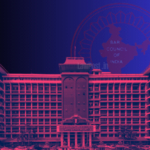In a landmark judgment, the Punjab and Haryana High Court has ruled that a woman employed on compassionate grounds following her husband’s death is obligated to maintain her mother-in-law. Justice Harpreet Singh Brar upheld a family court order directing the woman to pay ₹10,000 per month as interim maintenance to her mother-in-law.
The Court clarified that while Section 125 of the Code of Criminal Procedure (CrPC) does not impose a legal duty on a daughter-in-law to maintain her in-laws, exceptions can be made to serve the cause of justice.
Exceptions Carved for Justice
The Court emphasized the flexibility of Section 125 CrPC to prevent destitution and ensure social justice. Referring to past judgments, Justice Brar noted:
“When the interest of justice demands it, exceptions have been carved out to serve the interest of justice.”
The petitioner, employed as a junior clerk at the Rail Coach Factory, was appointed in 2005 after her husband, a constable, passed away in 2002. Her mother-in-law, who approached the court in 2022, cited a lack of support from her other children, including a married daughter and a son struggling financially.
The Court highlighted the petitioner’s affidavit at the time of her appointment, which included an undertaking to care for her husband’s dependents.
“Since the petitioner was given her current job on compassionate ground, she is liable to take care of the respondent, as she has stepped into the shoes of her deceased husband,” the Court stated.
Balance Between Duty and Rights
Acknowledging the petitioner’s concerns as a single mother, the Court maintained that she could not shirk responsibilities tied to her compassionate appointment.
“She cannot be allowed to reap the benefits of compassionate appointment and at the same time avoid the responsibilities that come with it,” the judgment read.
The Court also stressed that maintenance laws are rooted in the constitutional principles of justice and equality.
“The provisions of Section 125 of Cr.P.C. (now Section 144 of BNSS) were enacted as a measure to further social justice and protect dependent women, children, and parents, which also fall within the constitutional sweep of Article 15(3) reinforced by Article 39 of the Constitution of India.”
A Reasonable Expectation
The Court concluded that the petitioner, earning ₹80,000 per month, could comfortably afford ₹10,000 as maintenance.
“The object and purpose behind granting maintenance under Section 125 of CrPC is to avoid destitution or vagrancy. At the same time, a just and careful balance must be struck to ensure that this provision does not degenerate into a weapon of harassment.”








